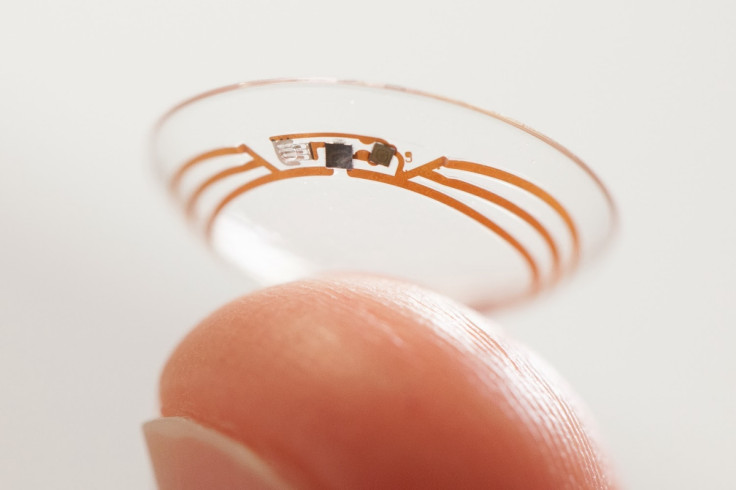Smart contact lens that lets you 'take photos with your eyes' patented by Samsung

Samsung could be working on a smart contact lens equipped with a built-in camera, minuscule display, antennae and sensors that would allow users to experience augmented reality, with images projected directly into the wearer's eyes.
According to unofficial Samsung blog SamMobile, the South Korean company filed a patent for the lens back in 2014, frustrated by the limitations of smart glasses such as the short-lived Google Glass. Controlled using eye movements and blinking, the lens would potentially allow users to take photos discreetly with the mini camera and then transmit the image to a companion device such as a smartphone or tablet. It could also overlay internet-connected services and images on the real world, allowing the wearer to view AR much more naturally than smart glasses.
It is not clear whether patent has been granted or if the company is currently working on the hardware as a planned product. However, the company did move to trademark the name Gear Blink around the same time the patent was filed.
Virtual reality (VR) has the tech world buzzing in 2016 as Oculus Rift and HTC Vive headsets make their way to customers, and tech giants such as Google, Sony and Microsoft invest heavily in immersive VR technology.
Samsung is not the first tech firm to work on smart contact lens technology. Google, which also owns a few patents for similar technology, signed a deal with healthcare specialist Novartis in 2014 to develop contact lenses that can read blood sugar levels in the tears of its wearer.
"Our dream is to use the latest technology in the miniaturisation of electronics to help improve the quality of life for millions of people," Google co-founder Sergey Brin said at the time.
The same year, US-based wearables startup Innovega created its own contact lenses that could be used to create AR, when paired with a pair of sleek eyeglasses.
According to a report by Digi-Capital, the VR/AR market is expected to garner $150bn (£105bn) by 2020, with AR taking the larger slice of around $120bn to VR's $30bn.
© Copyright IBTimes 2025. All rights reserved.





















